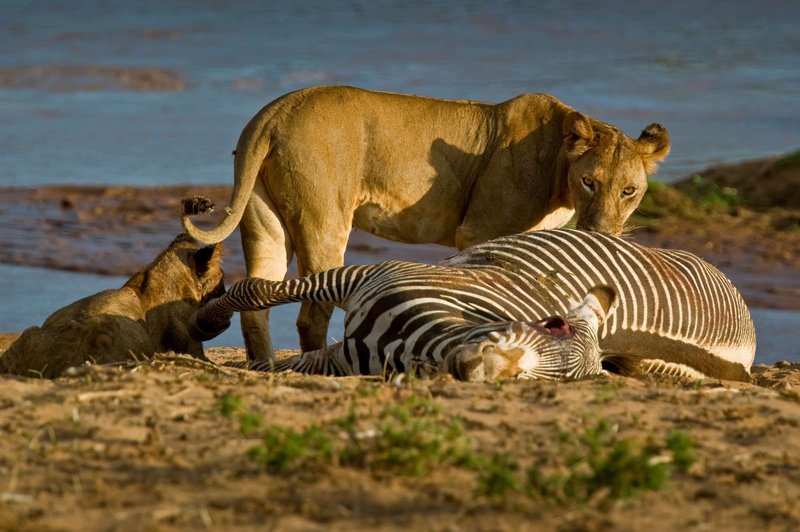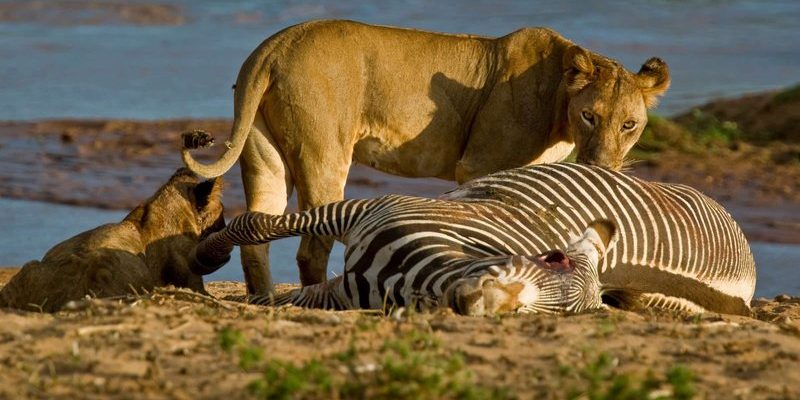
Lions are top predators, which means they sit at the top of the food chain. Their very existence impacts the populations of other animals and the health of their habitat. Understanding the lion’s role helps us appreciate not just their beauty, but also their significance in the intricate web of life on Earth. Let’s break down how lions contribute to their ecosystem and why that matters.
The Lion as a Top Predator
Lions are often referred to as apex predators because they are at the top of the food chain. This position allows them to control the population of herbivores like zebras, wildebeests, and antelopes. By hunting these animals, lions prevent overgrazing and keep the balance in their environment.
Without lions, herbivore populations can surge. Think of it like a garden overrun with weeds—the plants that are supposed to thrive can be choked out. In the African savanna, if too many herbivores roam free, they can strip the land of vegetation. This leads to soil erosion and can even change the landscape dramatically. So, the lion’s role in hunting ensures that the ecosystem remains healthy and thriving.
Social Structure of Lions
Lions are unique among big cats for their social behavior. They live in groups called prides, which usually consist of related females, their young, and a few males. This social structure plays an important role in their hunting strategy. When lions hunt in groups, they can take down larger prey more effectively.
The pride dynamic also helps in territory control. Male lions patrol their territory, which is crucial for claiming resources and ensuring the safety of their pride from rival males. Here’s the thing: maintaining territory allows lions to secure food and safe breeding areas, further stabilizing their ecosystem. The social behaviors of lions create a balance that supports not just their survival, but the survival of other species within their range.
The Impact of Lions on Other Species
The presence of lions influences behaviors and populations of other animals, often referred to as the “landscape of fear.” When herbivores sense the danger of being hunted, they tend to be more cautious. This affects where they graze and which plants they eat, allowing certain vegetation to flourish.
For example, when lions are present, herbivores might avoid certain areas, allowing grasslands to grow taller and support a more diverse array of plant species. This diversity benefits other animals that rely on those plants for food and shelter. So, when we talk about the lion’s role in its ecosystem, we’re really looking at how their hunting impacts the entire habitat.
Health of the Ecosystem
Healthy lion populations are indicators of a balanced ecosystem. If their numbers decline, it usually signals problems within their environment. Factors like poaching, habitat loss, and human-wildlife conflict can greatly affect lion populations, which can have a cascading effect on the ecosystem.
Conserving lions helps in maintaining the ecosystem’s health. When protected, lions can continue to regulate herbivore populations, which in turn supports plant diversity and overall ecosystem stability. Here’s the reality: when we lose apex predators like lions, we risk unbalancing the entire system, which could lead to ecological collapse in certain areas.
The Importance of Conservation
Protecting lions is essential for preserving the biodiversity of their habitats. Many organizations work tirelessly to conserve lion populations and their ecosystems. Conservation efforts include anti-poaching initiatives, habitat restoration, and community education programs.
Through these efforts, communities can learn the value of living alongside lions. For instance, sustainable tourism can provide economic incentives to protect wildlife. When local people understand that lions contribute to the ecosystem’s health—and can even bring in tourists—they are more likely to support conservation efforts.
Ultimately, lion conservation is not just about preserving a majestic animal; it’s about maintaining the natural balance that sustains countless other species, including humans.
In summary, lions play a vital role in their ecosystem. As apex predators, they help manage herbivore populations, promote plant diversity, and signify a healthy environment. Their social structures create stability within their groups, while their presence influences the behavior of other animals.
Acknowledging the lion’s role helps us understand the intricate connections within ecosystems. Protecting these magnificent creatures is crucial for the health of our planet and the myriad species that share it. So next time you hear the roar of a lion or see a majestic photo, remember: they’re not just kings of the jungle; they are essential players in the grand dance of nature.

